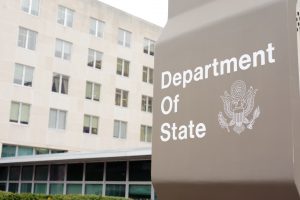The United States has arrived at a signified opportunity to modify its attitude toward IT infrastructure. The State Department’s primary clutch of current contract vehicles, mired in out-of-date-strategies, won’t do any favors for modern marketplace appeal. A fresh spin on contractor engagement, in the form of consolidation, is paramount for successful collaborations on federal network stability and data management.
The State Department’s CIO directly oversees the IRM (Information Resources Management) office, which has put forward an official request for information (RFI) from contractors vying for a spot on this highly specialized, consolidated squad. The IRM has designed a $4 billion contract to cherry-pick the best and brightest for specific areas of IT need, with the proviso of the overall engagement covering all functional areas. The scope of functional IT distinctions includes computer and data center services, security and compliance, delivery, IT management, application, and services for output, end-user solutions, storage, networks, and platforms. The RFI is careful to detail what might be expected for each unique undertaking, but intersectional expertise is still crucial to the increased consistency among the programs the IRM office is banking on achieving.
The goal is to divide necessary resources among these 11 areas and build a more flexible infrastructure around existing assets. Though the IRM office considers its contract clusters, known officially as Vanguard 2.2.1 in this iteration, to be business as usual, the existing deals are centered around technology acquisition and fail to facilitate an all-hands-on-deck approach for an assortment of contractors. The engagements covered by the $4 billion commission will be selected based on a willingness and evident ability to focus on conflict resolution and project development. The contract espouses an optimistic message to an industry eager to listen; the U.S. government’s fundamental shift toward prioritizing IT modernization will bring out the best of outsourced help.
Contract scribes are said to be spreading the $4 billion over the span of the next decade, with up to 10 awardees possible. The indefinite delivery, indefinite quantity contract has been rendered time-sensitive, as a bevy of extant IRM contracts are nearing expiration or are simply unpalatable despite room for modification. “The option years authorized under the task orders are being quickly exhausted and a new acquisition strategy is being developed for follow-on acquisition(s),” states the RFI. “The government intends to award a multiple award to support the needs currently met under Vanguard 2.2.1 and the scope will also encompass IRM’s future IT-Service needs not currently under Vanguard 2.2.1.”
The federal IT enterprise, desperate for rejuvenation in a tumultuous period of information mismanagement and security concerns, now looks to embrace the changes that have transformed many private sector industries into modernization mavens. Casting a spotlight on problem solving, rather than technological innovation, is a smart play that will elevate the U.S.’s attempt to fortify IT oversight.

























